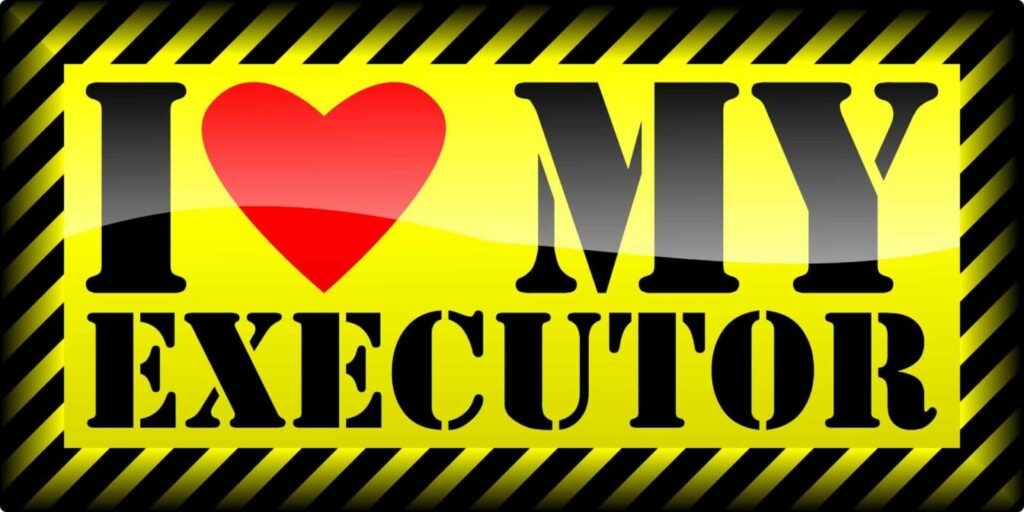What if your Executor doesn’t want to serve, once you have your Last Will and Testament plan in place?
Good communication is key here? When creating or revising your will, and you’ve finally come to determine who you trust enough to serve as your executor, you’ll need to take the next step. It involves having a conversation with the person about what you are asking them to do. You’ll need to ask if they are willing, says the Pocono Record in the article “Don’t assume person is willing to be your executor.” People are often flattered at first when they are asked about this role, but if they don’t fully understand the responsibilities, they may decide not to serve just when you need them the most.
First, let them know what they are in for. I tell potential executors [In Maryland referred to as “Personal Representatives”] that the duties will be, at a minimum, the executor is likely to need to work with the probate process, clean out your home, distribute your stuff, file at least two tax returns for you, and sell your house.
I want to have at least three names on a will to serve as the executor, one after the other. Even if your current executor is perfectly willing and able to serve, they may be faced with a crisis when the time comes, and need to decline. The named person can sign a consent for the next person to serve, and be bypassed if need be.
Why three names? If one dies or moved and you only have two, your plan lacks back up capacity. If the deceased person is your child, this is a bad time to have to come in and revise your documents. Too may executors is better than not enough.
Once your executor has agreed to act on your behalf and you have a last will and testament prepared by an estate attorney, tell your executor where your will is stored. Remember that they need to have access, in addition to knowing where the document is. If the will is kept at home in a fire-proof box or a document box that is locked, make sure to tell them where the key is located.
Some lawyers hold the original will, as a foothold to be hired for the probate work. I don’t like this, because lawyers die, firms split up, and finding the lawyer later, if the executor forgets, is like finding a needle in a haystack.
Some people store the will in a bank’s safe deposit box. If you do so, you have a few additional tasks to complete. One is to make sure that your executor will be able to access the safe deposit box. That may mean adding them to the list of people who have access. They may be technically permitted to enter the box with a bank representative solely for the purpose of obtaining the last will and testament. However, you should check with your branch first.
If kept in a safe deposit box that the executor can’t access, then they have to go to Court and convince the Register of Wills to issue limited Letters of Administration to open the box and bring back the will.
The far better alternative is to pre-file the will with the probate court. In Maryland, each county as a Register of Wills, which will do just that. We strongly advise using this service, as the will is not public until you die, but it is where it needs to be. If the executor can’t remember who the lawyer was who did the will, the can find out by going to Court.
Communication is very important in the executor’s role. You may or may not want to allow them to see the will before you pass, but they will need to know where the original document can be found.
To make the next part of the executor’s job easier, create an inventory of your assets and include information they will need to complete their task. They’ll also need to know contact information and account numbers for homeowners and car insurance, veterans’ benefits, credit cards, mortgage, pensions, retirement accounts, and any other assets.
Some people store their information on their computer. However, if the executor cannot access your computer or cannot get into the computer because they don’t have your password, you may want to create a hard copy document, as well as keeping information on your computer.
The best way to avoid a situation “where your executor doesn’t want to serve” is to pave the way for a smoother task. Taking on the role of an executor is a big job. You can show your appreciation, even after you are gone, by making all preparations for the information needed.
Reference: Pocono Record (May 1, 2019) “Don’t assume person is willing to be your executor”
Suggested Key Terms:


